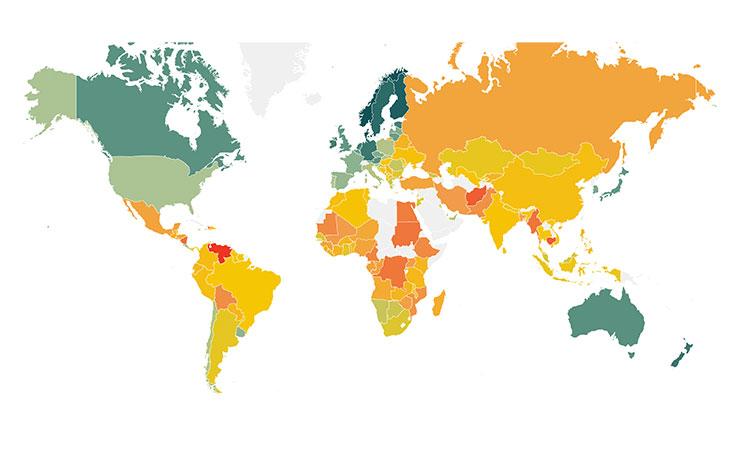
The 67th UN General Assembly recently adopted an unprecedented resolution emanating from its first-ever High-Level Meeting on the Rule of Law in September. For the first time in history, 193 Member States unanimously and explicitly linked the rule of law and development, stating:
“We are convinced that the rule of law and development are strongly interrelated and mutually reinforcing, that the advancement of the rule of law at the national and international levels is essential for sustained and inclusive economic growth, sustainable development, the eradication of poverty and hunger, and the full realization of all human rights and fundamental freedoms, including the right to development, all of which in turn reinforce the rule of law, and for this reason we are convinced that this interrelationship should be considered in the post-2015 international development agenda.”
Rule of law is fundamental to development. People who don’t feel safe and think their property may be stolen or destroyed won’t invest in the future. Why buy seed if the harvest will be stolen? Why invest in a business whose profits will be swallowed by corruption? Who would send a daughter to school if they thought she would be raped on the way?
Communities that cannot deal with the past, moreover, cannot move forward. Transitional justice, which allows post-crisis communities to address legacies of violence and hold perpetrators to account, is therefore critical.Without transitional justice, no meaningful social contract is possible. In each case, the rule of law allows people to look forward to a brighter future, in which they find opportunities to achieve their potential and in which legal protection exists for all.
A historic moment
Adoption of this resolution–and this section specifically–marks a historic turning point in its own right. It comes, further, at a unique and critical moment in history, as UN entities launch a streamlined, rapid-response system to address the aftermath of major crises and conflicts and as Member States think critically about the legacy of the internationally agreed, anti-poverty Millennium Development Goals (MDGs) as the MDGs’ 2015 deadline approaches.
Let me be clear:
The world has shifted on its axis since 189 diverse Member States settled more than a decade ago on the MDGs, excluding any discussion of sensitive issues related to governance, access to justice, and human rights. But with the Cold War now long behind us and the Arab Spring having re-opened discussion of the social contracts that must necessarily underpin a cohesive community, we now find organizations such as the African Union, Council of Europe, and Organisation of American States all comprise regional human rights bodies of their own. Rule of law and all it implies–transparency, accountability, and universal access to justice–are now squarely on the table.
The question at hand then is how to institutionalize and operationalize this new consensus.
One pathway is the new UN Global Focal Point system, agreed in September, which will allow UNDP and the Department of Peacekeeping Operations (DPKO) to collaborate closely and quickly in supporting police, justice, and corrections in post-crisis and post-conflict settings.
Another will be the incorporation of rule of law in whatever targets succeed the MDGs. Member States agreed Sept. 24th to include the rule of law in discussions of the post-2015 agenda.
Possible inclusion of a goal related to the rule of law would be a major incentive for reforms.
We must now develop a set of relevant indicators, along with appropriate language making clear that sustainable good governance and rule of law are not benchma rks for but critical enablers of development—without which equal access to opportunity, health care, education, sanitation, and nutrition, for example, is simply impossible






